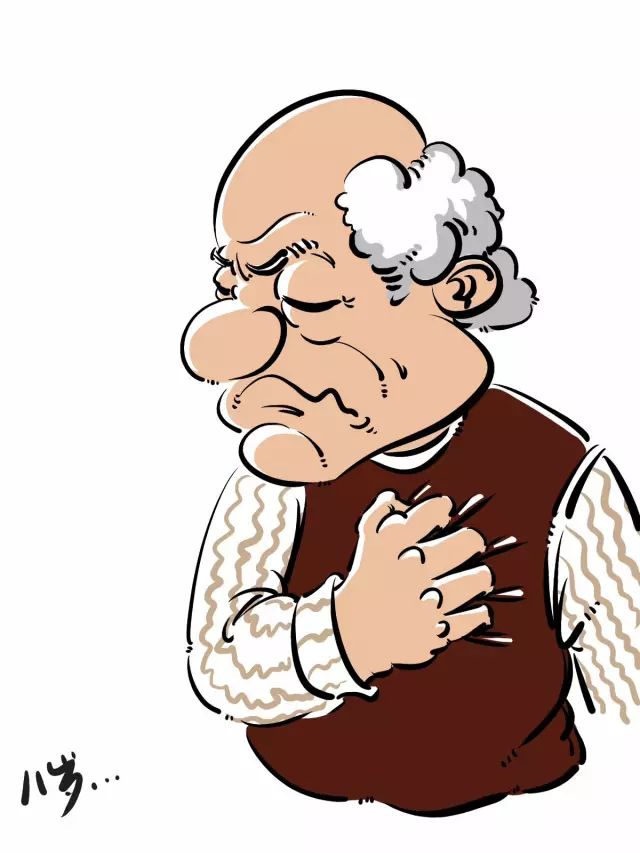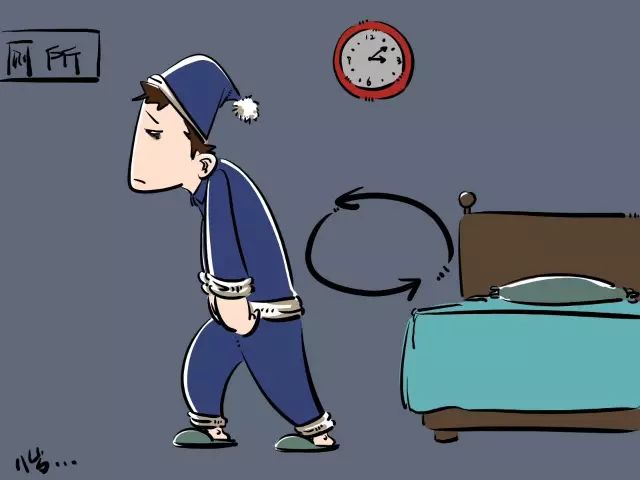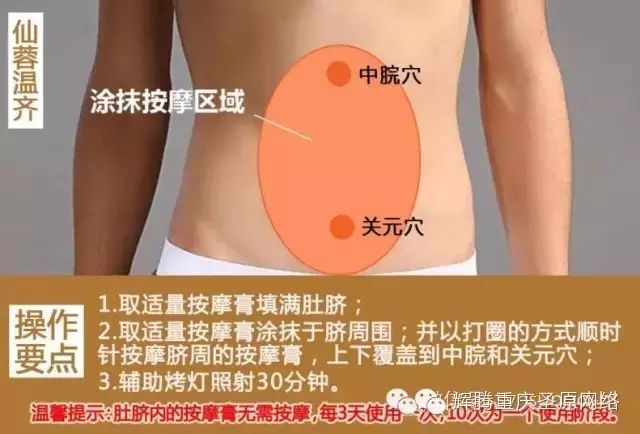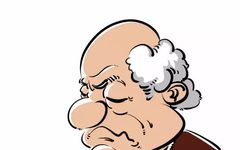If you pay close attention, you will find that during the autumn and winter seasons, cold fronts sweep from the north to the south in waves. On days without cold fronts, the temperature rises slightly, becoming a bit warmer, but after a few days, the cold front returns, causing rapid temperature drops across various regions, and everyone immediately feels the cold again.
So, on days when cold fronts invade, who is most likely to be affected? The first to be affected are those with Yang deficiency, as they have insufficient Yang energy and are very susceptible to cold evil.
Therefore, today we will discuss the manifestations of Yang deficiency in various organs!
01
Heart Yang Deficiency
First, let’s look at the upper jiao, which includes the heart and lungs. We will start with Heart Yang deficiency.
Individuals with Heart Yang deficiency have insufficient Yang energy in the heart, lacking the power to promote and warm the body, leading to the following symptoms: palpitations, shortness of breath, chest tightness, or chest pain that worsens in the cold. Spontaneous sweating, fear of cold, cold limbs, fatigue, pale complexion, or cyanosis of the lips and face, a pale and swollen or purplish tongue, white and slippery coating, and weak or irregular pulse.
These symptoms are prone to flare up in cold weather, and when cold evil attacks, problems are more likely to occur. For instance, some elderly individuals with Heart Yang deficiency may experience sudden heart pain or heart attacks while exercising outdoors in winter, resulting in hospitalization for emergency treatment.
Once, a young man named Wang Mengying, while working, saw his boss suddenly collapse from heart pain. He diagnosed it as Heart Yang deficiency and used a piece of Gan Jiang (Dried Ginger) he carried with him to brew a remedy that saved his boss’s life, leading to a lifelong friendship between them.
Therefore, during winter, individuals with inherent Heart Yang deficiency should take precautions. If they experience cold pain in the heart, it should be taken seriously. Regularly using Long Gui Qi Xin (Dragon Cinnamon and Astragalus) for conditioning is advisable.

02
Lung Yang Deficiency
Next, let’s examine the lungs in the upper jiao, which can also experience Yang deficiency.
Lung Yang deficiency is often seen in the elderly or those with chronic illnesses, and individuals with Yang deficiency can also have Lung Yang deficiency. This is often due to prolonged coughing, wheezing, or asthma, which depletes Lung Qi, or from taking cold and cooling medicines that harm the lungs, compounded by cold evil damaging the lungs, leading to Lung Yang deficiency.
Individuals with Lung Yang deficiency may exhibit the following symptoms: coughing with clear, thin sputum in large amounts, cold limbs, spontaneous sweating, a cold back, susceptibility to wind and cold, or wheezing and shortness of breath with slight exertion, or catching colds easily. They often feel fatigued, have shortness of breath that is insufficient for resting, dizziness, and do not feel thirsty. The tongue is pale, with a white, moist coating, and the pulse is slow or weak. These symptoms become significantly worse during the cold winter season. In terms of specific diseases, it can lead to lung atrophy, asthma, lung distension, and wind-cold colds.
Such individuals with Lung Yang deficiency are more commonly seen in Northeast China, where a considerable number of patients in traditional Chinese medicine clinics during winter suffer from respiratory diseases caused by Lung Yang deficiency. Therefore, for this group, it is essential to adopt a warming and tonifying the lungs approach, ideally starting conditioning in summer for better results. The famous TCM formula Xuan Hu Qing Run is effective for this condition.
03
Kidney Yang Deficiency
In the lower jiao, Kidney Yang deficiency is well-known. Individuals with Kidney Yang deficiency have insufficient Mingmen fire, leading to symptoms such as: fatigue, lack of energy, low vitality, easy fatigue; fear of cold, cold limbs (severe cases may feel cold even in summer), heavy body; soreness and cold pain in the lower back and knees, weakness of muscles and bones; reduced sexual function, impotence, premature ejaculation; clear, frequent urination, dribbling after urination, low urine output, or frequent night urination; decreased hearing or tinnitus; memory decline, drowsiness, vivid dreams, spontaneous sweating; prone to lower back pain, joint pain; susceptible to osteoporosis, cervical spondylosis, lumbar spondylosis; shortness of breath, wheezing with phlegm; early morning diarrhea or constipation; edema, especially below the waist, with lower limb swelling; hair loss, premature graying; a body that is either overweight or underweight; and a face that appears pale or dark without luster.
Individuals with Kidney Yang deficiency feel these symptoms more acutely in winter. Some may feel extremely drowsy during the day and experience increased night urination, which are manifestations of Kidney Yang deficiency. When cold evil attacks, problems are more likely to occur. Professor Zhang Yongchen from Shandong University of Traditional Chinese Medicine developed Xian Rong Wen Qi for navel therapy targeting Kidney deficiency and insufficient Qi and blood, which has shown significant effects.

In summary, I have broadly discussed the manifestations of Yang deficiency in various organs, so everyone can have a concept. Our overall Yang deficiency in the body will specifically reflect in various organs, sometimes with a focus on certain areas. Therefore, when conditioning, it is necessary to adjust according to the responses of each organ. Traditional Chinese medicine has a wealth of specific formulas that correspond to these conditions, and we will gradually discuss them in the future.
However, if you cannot determine where the problem lies, we can think in reverse. In fact, warming Yang overall is also very beneficial for the Yang deficiency in various organs.
Xian Rong Wen Qi is a pure herbal formula for navel massage, primarily targeting individuals with Kidney Yang deficiency.
● Frequent urination, clear and long, with increased night urination due to Kidney’s control over urination, insufficient Kidney Yang, and bladder Qi transformation obstruction; ● Soreness and pain in the lower back and knees due to the inability of deficient Kidney Yang to warm and nourish the lower back and bones; ● Impotence and premature ejaculation in men, and cold womb and infertility in women due to insufficient Kidney Yang and weakened Mingmen fire; ● Persistent diarrhea or undigested food, early morning diarrhea due to weakened Mingmen fire, which fails to warm the spleen; ● Edema, especially below the waist, due to insufficient Kidney Qi to transform and transport fluids, leading to water retention; ● Dark and dull complexion due to extreme deficiency of Kidney Yang, with excess Yin leading to stagnation of Qi and blood, causing malnourishment of the skin; ● Cold limbs, especially in the lower extremities, due to Yang deficiency failing to warm the skin; ● Mental fatigue due to Yang deficiency failing to transform dampness, leading to phlegm obstructing the heart, causing lack of spirit; ● Pale complexion, dizziness due to weak Qi and blood circulation failing to nourish the clear orifices; ● Pale, swollen tongue with white coating, and weak, slow pulse are all signs of Yang deficiency.
Thus, the sage does not treat his own illness but prevents illness before it occurs, does not treat chaos after it has arisen. This is the essence. To treat an illness only after it has developed is like digging a well when thirsty or forging a tool after a fight; is it not too late?
Aging is a natural law. The organs that first perceive aging in the human body are
the endocrine system—ovaries, testes, pituitary gland, urinary and reproductive systems—kidneys, prostate, bladder, urethra.
memory decline
Upper Jiao Excess Heat
irritability, insomnia, dry mouth, bitter taste, mouth sores, sore throat, bleeding gums, rhinitis, pharyngitis
—— toxin accumulation
Middle Jiao Weakness
stomach cold, abdominal pain, bloating, indigestion, diarrhea, constipation
—— digestive system
Lower Jiao Deficiency Cold
cold hands and feet, frequent night urination, prostatitis, frequent urination, menstrual irregularities, dysmenorrhea, amenorrhea, blocked fallopian tubes, cold womb infertility, impotence, premature ejaculation, decreased libido, low sperm viability
—— urinary and reproductive system
Is taking supplements and health products the best choice for health preservation?
We in traditional Chinese medicine have discovered an interesting aspect of the human body.
Navel Therapy in Traditional Chinese Medicine for Anti-Aging
Characteristics of the navel
Compared to other parts of the body, the navel has unique physiological characteristics:
“Three Abundances”:
① Many blood vessels, with an exceptionally rich network of capillaries around the navel;
② Many meridians, connecting with the twelve meridians, serving as a convergence point for meridians;
③ Many acupoints, with nearly 30 important acupoints distributed in the abdomen centered around the navel.
“One Thin”: the skin around the navel is thin.

Zhang Yongchen Chief Physician, Professor, Master’s Supervisor
Engaged in acupuncture clinical practice, research, and preventive health care for over 20 years, skilled in using acupuncture and navel therapy combined with external herbal treatments for diseases and health preservation. Participated in one national “973” project, three national natural science foundation projects, led two provincial TCM management bureau projects, and published over 100 academic papers in Chinese and English.
Jia Hongling Chief Physician, Professor, Master’s Supervisor
Skilled in using acupuncture and navel therapy combined with external herbal treatments for internal medicine, gynecology, and pediatrics, applying “quick needle insertion and removal technique” and “dragon-tiger combat needle technique” to treat various pain syndromes. Participated in one national “973” project, led two provincial TCM management bureau projects, and two provincial natural science foundation projects.


